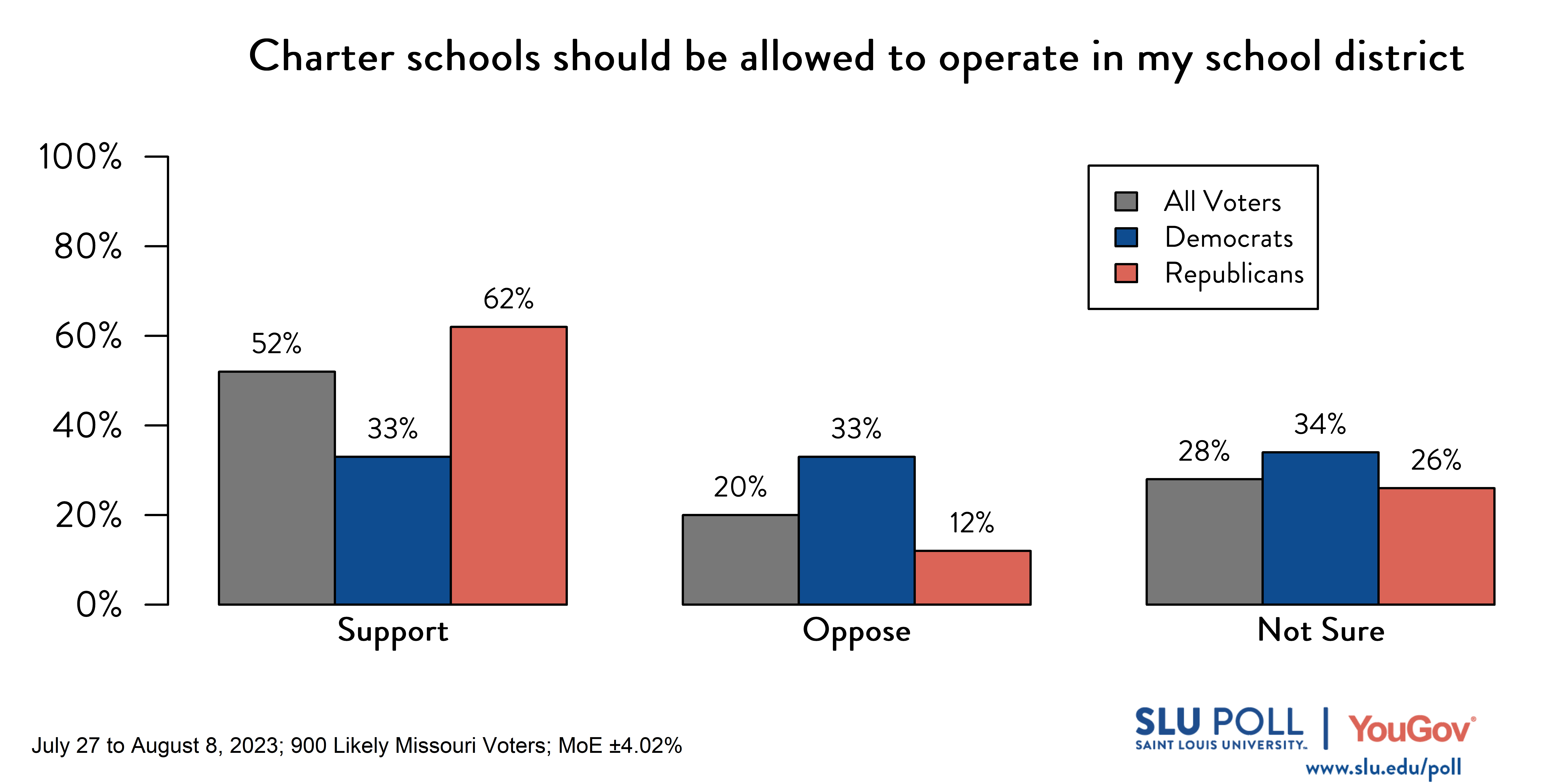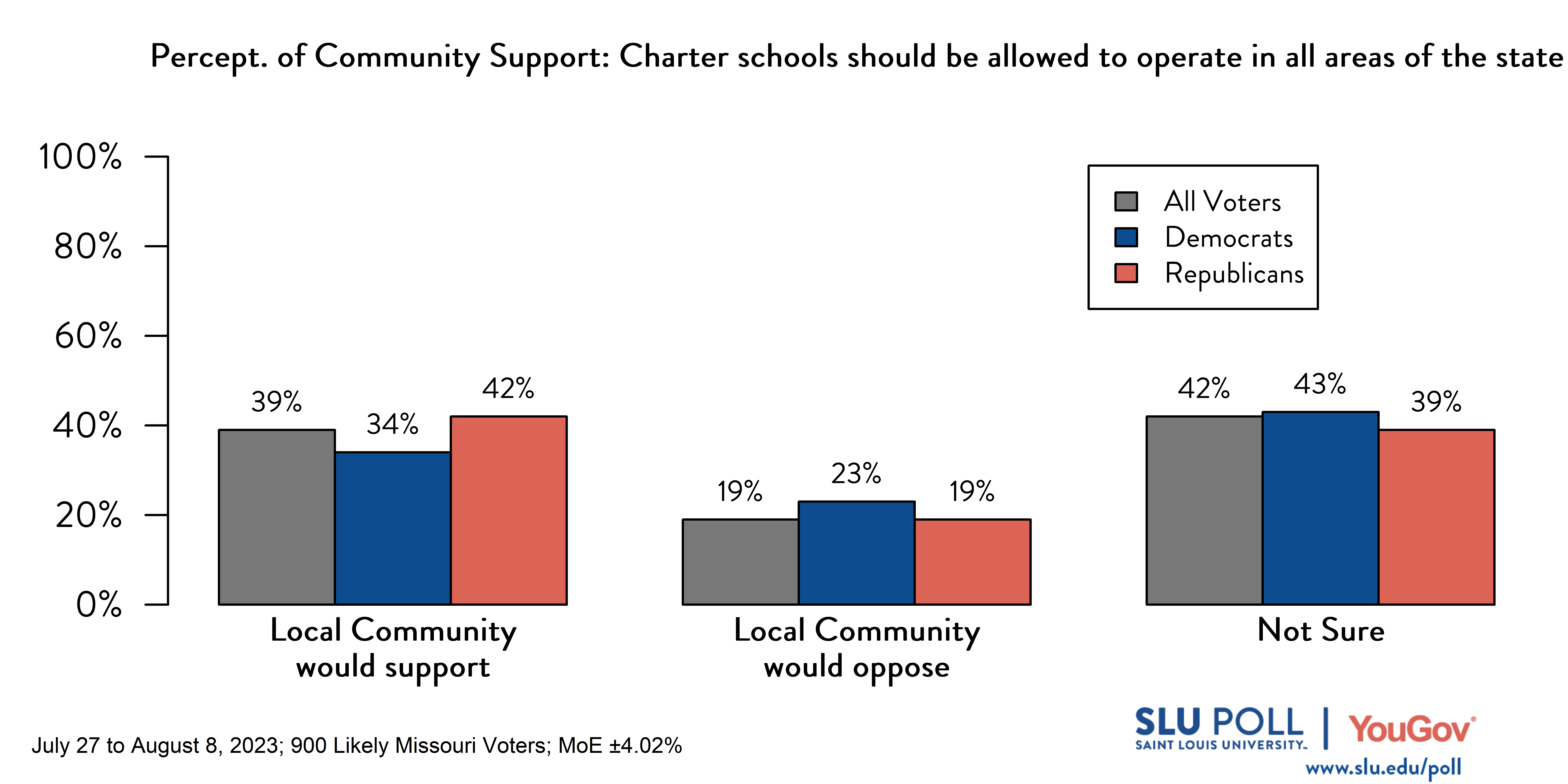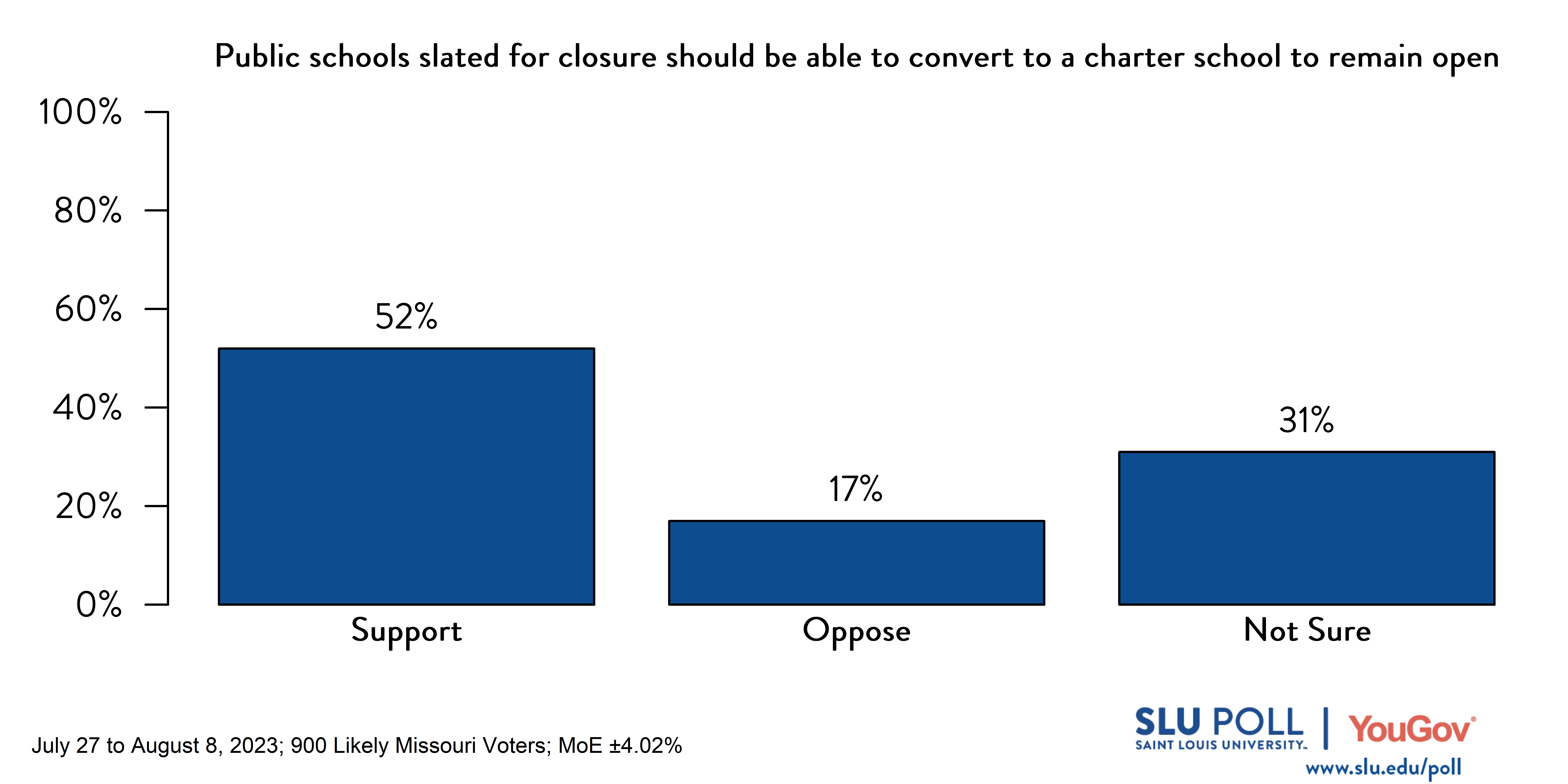Voter Opinions on Charter School Expansion and Charter School Niches
SLU's Abigail Burrola provides analysis on the latest SLU/YouGov poll results, examining how Missourians view charter schools.
A recurring issue in Missouri’s state legislature is that of attempting to expand charter school operations in the state. Charter schools are public schools of choice that students can attend instead of their assigned public school, free of charge (National Alliance for Public Charter Schools, 2023). Currently, charter schools only operate in the boundaries of the Saint Louis Public School District, Kansas City Public School District, and there is a single charter school located in the Normandy Collaborative district (St. Louis Post-Dispatch, September 2022). Recent proposals in the legislature have sought to make it easier for charter schools to open up in other areas of the state beyond SLPS and KCPS, such as allowing different types of charter school sponsors than just the local school board in counties with a charter form of government of a city with a population greater than 30,000 (SB. 304, 2023).
The SLU/YouGov August 2023 Poll asked likely Missouri voters about their levels of support for charter school policies, how they perceive their local community’s level of support, and specific instances in which charter schools may operate. Overall, just over half of respondents supported allowing charter schools to operate in their home school district (52%) and in all areas of the state (55%). There are also similar levels of opposition to allowing charter schools locally and statewide (20% and 19%, respectively) and those who were unsure (28% and 26%).
Unsurprisingly, there are large splits in support for charter schools (both locally and statewide) along party lines. When asked about allowing charter schools in one’s home school district, 62% of Republicans were supportive, while only 33% of Democrats were supportive. There was over twice as much opposition to allowing charter schools in one’s home district from Democrats than Republicans (33% v. 12%), which mirrors rates of opposition to allowing charter schools statewide (30% v. 13%).
When respondents were asked about how they perceive the support of their local community for allowing charter schools locally and statewide, there was lower perceived support than support demonstrated in the poll. For example, overall results found that 55% of respondents supported allowing charter schools to operate in all areas of the state, while only 39% of respondents believed their local community would support it. There is a similar pattern for allowing charter schools in one’s home school district; 52% of respondents supported it, while only 38% of respondents believed their local community would support it. It should be noted that a fair portion of respondents were unsure about their local community’s support. Roughly 40% were unsure if their local community would support or oppose allowing charter schools locally (38%) and statewide (42%). This could suggest that charter schools do not often surface in community conversations, but people may think there is less support than there actually is.
The SLU/YouGov Poll also asked about two specific charter school policies: public schools slated for closure converting to a charter school and charter schools that focus on serving homeschool students. In some instances, states allow public schools slated for closure to convert to a charter school (Education Commission of the States, January 2020). This is particularly salient for rural districts as low enrollment can leave rural districts vulnerable to struggling finances, one reason schools are threatened with closure (EdWeek, August 2017). Roughly 14% of rural charter schools were conversions in the 2018-2019 school year (Marshall et al., 2022). Support for charter conversions overall was at 52%, while 17% of respondents opposed it, and 31% were unsure. Support is similar to overall support for charters generally, but this policy sees a slightly higher percentage of overall respondents who were not sure.
There was, however, more support for charter schools geared toward homeschool students, who would split their time between learning in school and at home, with overall support at 62%. These types of charter schools can take on different forms, as some may have more formal education structures, and others may be more of an organized homeschooling support system (Wearne, 2019).
Interestingly, support was highest among subgroups for homeschool-focused charters among respondents who were 18-29 years old, at 75%. Support from 30–44-year-olds was 61%, 58% from 45–64-year-olds, and 62% for those 65 and older. There was also higher support from non-white respondents (69%) than white respondents (61%). Additionally, support decreased as respondent’s income increased as levels of support were 66% from those with an annual income below $50,000, 61% from those with an annual income between $50,000 and $100,000, and 56% from those with an income over $100,000. Younger, less wealthy, and more diverse families seem to express higher levels of support for homeschool-focused charter schools.
Overall, about half of Missouri voters support allowing charter schools to operate in their home district and throughout the state overall. There are, however, clear differences in support when analyzing voter support by political party, as there is less support from Democrats than Republicans. Voters perceive less support among their local community for charter schools than findings from the poll would suggest but a fair percentage of voters are still unsure what their local community thinks. As for the two different charter school policies, there is still roughly half of voters supporting charter school conversions for schools slated for closure, yet more support for charter schools that would support homeschool students.
This analysis is based on data from the August 2023 SLU/YouGov poll and reflects the opinion of the author.



